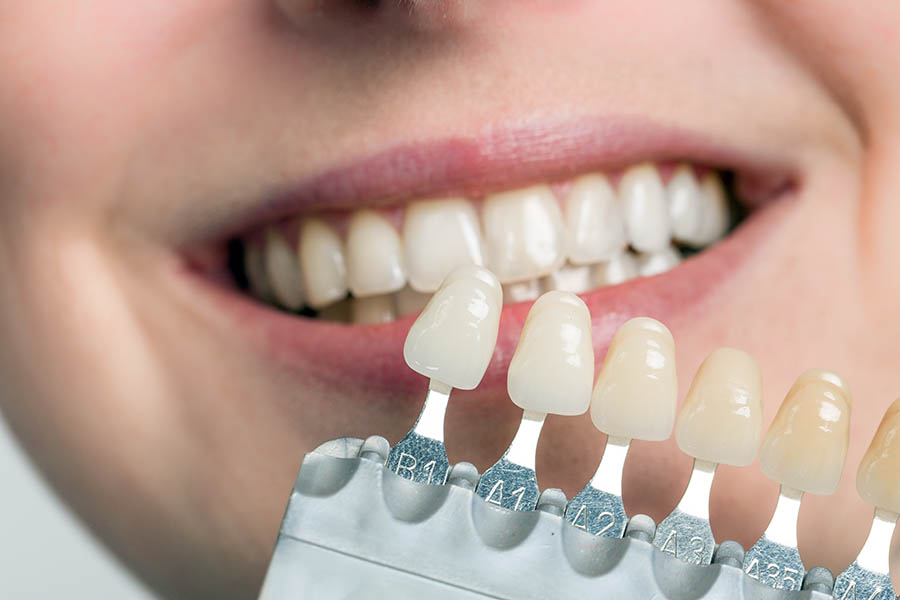Enhancing your smile with dental veneers can correct many dental cosmetic issues, but what are the pros and cons?
What are Dental Veneers?
According to the American Dental Association, dental veneers correct tooth imperfections, such as chips, discoloration, and uneven spacing. Veneers are ultra-thin, custom-crafted porcelain or composite shells that bond securely to the front of your teeth. Because veneers require some dental work in advance, they are a permanent solution. Therefore, it’s essential to understand the pros and cons before opting for veneers.

Pros of Dental Veneers
Dental veneers offer a number of benefits.
-
Dental Veneers Whiten Your Smile
A lifetime of eating and drinking can cause teeth to discolor to a yellow or brown hue. Teeth whitening, although popular, is only a temporary solution. For a permanent, easier way to whiten your smile, dental veneers are a great fit. Veneers are more stain-resistant than your natural enamel and provide a long-lasting smile. Veneers are also specially made to blend in with your natural teeth. -
Veneers Fix Minor Cosmetic Problems
Veneers correct many cosmetic dental issues permanently by camouflaging minor orthodontic problems. Veneers instantly cover tooth chips, cracks and gaps to create a beautiful, new smile. -
Veneers Replace Enamel Durable
Over time, tooth enamel can wear or become damaged. Veneers work to essentially replace compromised enamel. Each veneer is a barrier that protects the structure of the tooth. -
Veneers are Durable
Porcelain veneers are a biocompatible dental material. Porcelain naturally adheres to your DNA to form an actual bond with your body. Porcelain veneers are incredibly durable and can remain in place for more than 15 years. -
Veneers are low maintenance
Once fitted, dental veneers do not require any special care. Caring for veneers is like caring for natural teeth. Brush and floss daily, wear a nightguard, and stay consistent with your dental cleanings.
Cons of Dental Veneers
Dental veneers also come with certain disadvantages.
-
Veneers are Costly and are not Covered by Insurance
Depending upon your location and the number of teeth to be covered, veneers can be a real investment. Veneers are a cosmetic procedure. In most cases, veneers are not covered by dental insurance. -
Veneers are Irreversible
Before placing your veneers, a thin layer of tooth enamel must be removed. Because enamel does not replace itself, veneers are considered an irreversible cosmetic dental procedure. -
Veneers can Cause Tooth Sensitivity
According to the American Academy of Cosmetic Dentistry, for some people, veneers can cause light sensitivity to hot or cold temperatures for the first few days. Tooth sensitivity can be uncomfortable, but it is usually temporary.

Dental veneers are an effective way to conceal discolored, misaligned, or damaged teeth. If you are considering dental veneers, please schedule a consultation with Dr. Sarah Frahm to find out if dental veneers are the right solution for you.

